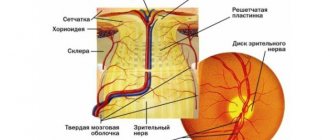Socialization concept
First of all, when considering the issue of the stages of socialization, we will define the concept of socialization.
Definition 1
Socialization is the process of an individual’s assimilation of social norms and values, the knowledge system existing in society, rules of behavior, and psychological attitudes.
Socialization is integrative in nature and includes training, education, adaptation to society, the result of which is the assimilation by a person of the norms and values of society.
Society is not static, and therefore a person has to assimilate and adapt to changes in society, and society - to a person. Thus, we can say that the socialization of the individual occurs throughout human life.
Socialization
Socialization (from Latin socialis, social) is the process of a person acquiring such personality qualities that will allow him to live, communicate, work in society, express himself as an individual, and be responsible for all his affairs, for himself and for those around him. Socialization is also the result of a person’s mastery of social experience.
It is in the process of socialization that a person becomes an individual, and this process occurs literally throughout his life, from his first days. A person communicates with different people, finds himself in a variety of situations. His views and habits change, and a reassessment of values may occur. Therefore, the process of socialization never ends. As long as a person lives, he is under the influence of society.
Stages of socialization
Taking into account that the process of socialization is long, we can distinguish some stages of socialization.
Primary and secondary socialization should be distinguished.
Primary socialization begins from birth to adulthood. The main institutions of socialization during this period are family, school, and peers.
Finished works on a similar topic
- Course work Stages of personality socialization 420 rub.
- Abstract Stages of personality socialization 280 rub.
- Test work Stages of personality socialization 240 rub.
Receive completed work or specialist advice on your educational project Find out the cost
Secondary socialization occurs throughout a person’s life and is characterized by the destruction of previously learned norms and the adoption of new ones.
The stages of socialization are associated with age periods of human development. Let us consider the features of the stages in each period.
Childhood is one of the key stages of socialization; this period accounts for the formation of 70% of a person’s personality. Violations of the socialization process at this stage have irreversible consequences for a person’s personality, because during this period the formation of a person’s own “I” occurs.
Teenage years . This stage can also be assigned one of the key roles, since significant physiological and psychological changes occur during this period.
Maturity . Associated with the conscious choice of one’s environment, professional activity, etc. Old age . It is characterized by a decline in physical capabilities and the need to adapt to a new stage of one’s life.
The age stages of socialization were proposed in more detail by Erikson. Let's look at them.
Too lazy to read?
Ask a question to the experts and get an answer within 15 minutes!
Ask a Question
- Infancy - at this stage, the key role is assigned to the mother, who forms the child’s basic trust in the surrounding society through caring for him.
- Early childhood is characterized by the formation of the child’s independent status and independence. At this stage, the child learns to walk, eat, etc. independently.
- The third stage, age 3-5 years, manifests itself in a playful form, which allows the child to expand his knowledge of the world, master interpersonal relationships, and develop psychological capabilities. If suppressed at this stage of development, games are prohibited, the child develops a feeling of guilt and self-doubt.
- Junior school age is characterized by a change in the key agent of socialization, where the central place is no longer occupied by the family, but by the school. At this stage, the child’s ideas about professions, modern culture, norms and values are formed. If successful, the child moves on to the next stage, confident in his abilities and purposeful. Otherwise, the child develops feelings of fear, guilt and self-doubt.
- Adolescence and stage 5 are determined by significant physiological changes in the body, the manifestation of interest in one’s appearance and one’s position among peers, and the need for professional self-determination.
- At the stage of youth, a person faces the question of finding and choosing a spouse, close interpersonal communication, and forming a deep connection with his social group.
- The adult stage of socialization is associated with the self-realization of the individual. At this stage, a person passes on his experience to children, gets involved in interaction with family, colleagues, and is satisfied with his life.
- The final stage after 50 years is characterized by a person’s awareness of his own “I”. During this period, a person becomes aware of his life and accepts it.
Also, depending on the forms of socialization, the following stages of socialization can be distinguished: pre-labor – childhood, adolescence; labor – maturity; post-work – old age.
Each subsequent stage of socialization involves expanding the forms of interaction between a person and society.
The pre-labor stage, which occurs during childhood and adolescence, is characterized by a passive form of socialization, in which a person learns, without questioning existing social norms and experience, to strive to integrate into society.
At the labor stage during the period of maturity, a person combines a passive form of assimilation of social experience and an active form, characterized by the beginning of professional activity.
The final post-work period, the period of old age, is characterized by the accumulation and preservation of acquired experience with its subsequent transfer to the next generation.
Stages of socialization according to A.V. Petrovsky
From the point of view of subject-object social relations, Petrovsky A.V. The following stages of socialization were distinguished:
- Adaptation. The adaptation period occurs during childhood. During this period, a person acts as an object of relationships, exposed to such agents of socialization as family, school, peers, etc. During this period, a person actively learns and forms his personality.
- Personalization. At this stage, a person acts as a subject of social relations. The leading activity is not the assimilation of social norms, but their reproduction, which allows a person to express his personality, individualize, and distinguish himself from other people.
- Integration. At this stage, a person acts both as an object and as a subject of social relations. This stage is characterized by the achievement of an optimal position of a person in society, allowing him to self-realize and exist harmoniously in society.
VUZRU
“In the process of life, each person faces certain tasks, such as the ability to find and take his place in life, to become a professional, and to pass on the accumulated experience to his children. Such tasks are common to everyone, although “specific places in society, social and professional roles will be different for different people depending on their innate and acquired characteristics, ideas about themselves and life values, as well as situational opportunities.”
The process of socialization is one of the most important phenomena in the life of every person. “Socialization is the formation by an individual of social qualities throughout his life (mastery of the language of communication, knowledge of communication norms, traditions, customs, assimilation of social roles), thanks to which a person becomes a capable participant in social life.”
Factors of socialization are conditions that more or less actively influence human development. Accordingly, these conditions require certain behavior from him.
“There are many different classifications of socialization factors. But most often they use this hierarchy, proposed by Doctor of Pedagogical Sciences A.V. Mudrikom:
macro factors (space, planet, world, country, society, state) that influence the socialization of all inhabitants of the planet or very large groups of people living in certain countries;
mesofactors (meso - average, intermediate) - conditions for the socialization of large groups of people identified on the basis of nationality (ethnicity as a factor of socialization); by the place and type of settlement in which they live (region, village, city, town); by belonging to the audience of certain mass communication networks (radio, television, cinema, etc.)”;
microfactors, these include those that have a direct impact on specific people: family, peer groups, microsociety, organizations in which social education is carried out - educational, professional, public, etc.
“Socialization factors are also environmental factors in personality formation. However, unlike socialization, the factors of personality formation are supplemented by a biological factor. In foreign pedagogy, in a number of cases, it is given a primary role. Thus, according to some scientists, the environment, training and upbringing are only conditions for self-development, the manifestation of naturally determined mental characteristics.”
Indeed, a person is a living organism, and it is impossible to ignore the influence of the biological factor on personality development. But it is also necessary to remember that it is not personality qualities that are inherited, but certain inclinations (a natural disposition to a particular activity).
“Domestic pedagogy does not deny the influence of the biological factor on the formation of personality, but also does not assign it a decisive role. Whether the inclinations will develop and become abilities depends on social conditions, training and upbringing, i.e. the influence of heredity is always mediated by training, upbringing and social conditions. This thesis is also true regarding individual differences that underlie individual abilities.”
It is necessary to understand that socialization is by no means the antipode of individualization. The process of socialization in no way leads to the leveling of a person’s personality or individuality. Rather, on the contrary, in the process of socialization a person acquires his individuality.
The essence of socialization consists in the combination of adaptation and isolation of a person in the conditions of a particular society.
Adaptation (social adaptation) is the process and result of the counter-activity of the subject and the social environment (J. Piaget, R. Merton). Adaptation involves coordinating the requirements and expectations of the social environment in relation to a person with his attitudes and social behavior; coordination of a person’s self-esteem and aspirations with his capabilities and with the realities of the social environment.
Thus, adaptation is the process and result of an individual becoming a social being.
Separation is the process of autonomization of a person in society. The result of this process is a person’s need to have his own views and the presence of such (value autonomy), the need to have his own attachments (emotional autonomy), the need to independently resolve issues that concern him personally, the ability to resist those life situations that interfere with his self-change, self-determination, self-realization, self-affirmation (behavioral autonomy).
Thus, separation is the process and result of the formation of human individuality.
It follows from this that in the process of socialization there is an internal, not completely resolvable, conflict between the degree of a person’s adaptation to society and the degree of his isolation in society. In other words, effective socialization requires a certain balance of accommodation and separation.”










